Imagine suddenly being locked out of your Facebook account—your friends, photos, and messages feel like they’ve disappeared in an instant. It’s a frustrating situation, but the good news is that recovering your Facebook account is easier than you think. Whether you’ve forgotten your password, your account has been blocked, or you’re facing a security issue, knowing how to quickly and effectively recover your Facebook account is crucial.
In this guide, we’ll walk you through the latest recovery steps for 2025. No matter what issue your account is facing, we’ll show you how to resolve it step by step. We’ll also share expert tips on preventing future blocks and hacks, ensuring your Facebook account stays safe and secure.
Don’t let account problems slow you down—keep reading to learn how to recover your Facebook account easily and protect it for the future.
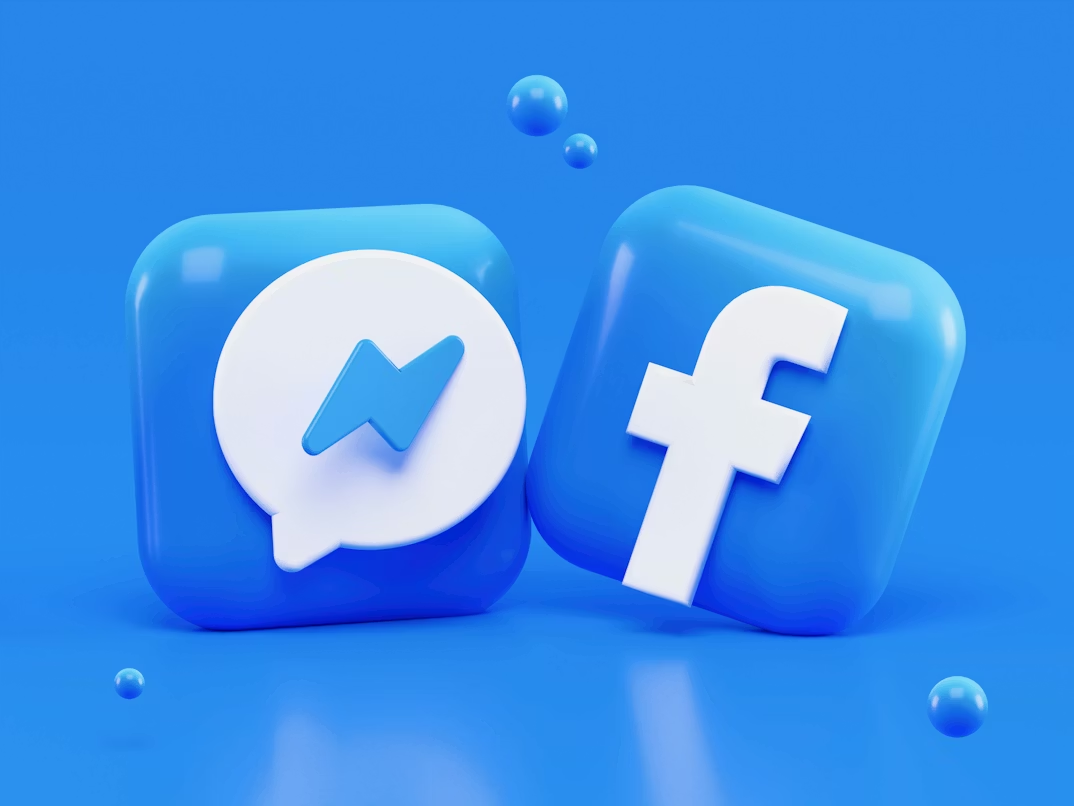
Reasons Why Your Facebook Account is Blocked
Common Reasons for Facebook Account Suspension or Block
- Violating community rules: Many accounts get blocked because they break the Facebook Community Standards.
- Unauthorized logins or strange login patterns: If Facebook sees logins from unusual places or many failed attempts, it may suspend the account.
- Password leaks or weak security: When someone else gets your password, you risk losing access to your account and need to recover Facebook account access fast.
- Mixing business use or spam‑like behavior: Using your personal account for many marketing tasks, or sending many friend invites quickly, can trigger a block.
The Importance of Timely Facebook Account Recovery
- Protect your personal data: If you delay to recover Facebook account access, you may lose photos, messages, or contacts.
- Keep your social and business connections: Your account links you to friends, family, and for many people, customers. Quick recovery helps you stay connected.
- Prevent misuse of your profile: A blocked or hacked account can be used by someone else to post unwanted content or pretend to be you. Acting fast lowers that risk.
- Stop small problems becoming big ones: Waiting too long may mean your account is permanently disabled or lost. Starting to recover Facebook account early gives you a much better chance.
Methods to Recover Your Facebook Account
If you're having trouble accessing your Facebook account, whether you've forgotten your password, your account has been hacked, or it's been blocked or restricted, follow these steps to regain access.
1. How to Recover Your Facebook Account if You Forgot Your Password
Forgetting your password can be frustrating, but recovering your account is easy.
- Visit the "Forgot Password?" link: Go to the Facebook login page and click "Forgot Password?". Enter your email, phone number, or username, and Facebook will help you find your account.
- Using Password Reset Links: Once Facebook locates your account, they’ll send a password reset link to your registered email or phone. Simply click the link, set a new password, and you’ll regain access.
- On Mobile Devices: If you’re on your phone, open the Facebook app and click "Forgot Password". Choose to receive a verification code via email or phone, enter the code to reset your password, and quickly recover your account.
2. How to Recover Your Facebook Account if It’s Been Hacked
If you suspect that your Facebook account has been hacked, act quickly to prevent further damage.
- Signs of Hacking: Look for unusual login locations, messages you didn’t send, or posts you didn’t make. These are clear signs your account may be compromised.
- Immediate Actions: Change your password immediately. Then, enable two-factor authentication (2FA) to secure your account.
- Report a Hacked Account: Visit facebook.com/hacked to report your hacked account and follow the steps to recover it and secure your data.
3. How to Recover a Facebook Account That Has Been Blocked or Restricted
If your Facebook account has been blocked or restricted, follow the steps below to attempt recovery:
- Request Unblocking: If the account has been blocked for over 180 days, you can try to request unblocking through the account recovery email that Facebook sends. Ensure you submit identity verification details, such as a government-issued ID, to confirm your identity.
- Verify Your Information: When completing the recovery form, ensure the information matches your registered details to speed up the verification process.
- Appeal Process: If your account is blocked, go to Facebook Help Center and choose the “My Facebook account is disabled” option. Provide the required information and submit your appeal with the necessary evidence, like an ID card. Facebook will review your case and notify you of any updates.
Preventing Future Facebook Account Blocks: Enhancing Security
How to Use Two‑Factor Authentication (2FA) to Secure Your Facebook Account
In today’s digital world, security is more important than ever, especially when your personal information and social connections are involved. Enabling two‑factor authentication (2FA) adds an extra layer of protection to your Facebook account, making it much harder for someone to access your account, even if they have your password.
- With 2FA enabled, even if someone steals your password, they won’t be able to log in without the second verification. It’s a simple step, but it makes a huge difference in protecting your account.
- Simply go to Settings → Security & Login → Two‑Factor Authentication and choose a method, such as an app or SMS.
- Taking this step helps protect your account from potential threats and can save you a lot of hassle in the future if you ever need to recover Facebook account access.
How to Set Strong Passwords and Update Them Regularly
A simple password is like a flimsy lock on your door—it’s easy to break. To protect your Facebook account, you need a strong, unique password that’s tough to guess.
- A strong password can stop hackers in their tracks. Use a combination of letters, numbers, and symbols to make it complex and hard to crack.
- Regularly updating your password is another great way to keep your account safe. Changing your password every few months can reduce the risk of your account being compromised.
- Never reuse passwords across platforms—this is one of the easiest ways to ensure that if one account is hacked, your Facebook account stays safe.
How to Use Multi‑Factor Authentication (MFA) to Prevent Facebook Account Hacking
While 2FA is great, multi‑factor authentication (MFA) takes your account security a step further. MFA is your ultimate weapon against hackers.
- Once MFA is enabled, you will need more than just your password to log in—perhaps a code sent to your phone, an app-generated code, or even biometric data like a fingerprint.
- MFA reduces the chance of unauthorized access to your account. It ensures that even if someone gains access to your password, they can’t get in without the extra verification step.
- Enabling MFA is an excellent way to further secure your Facebook account and avoid future issues where you might need to recover Facebook account access.
By following these simple steps—enabling 2FA, setting strong passwords, and activating MFA—you can significantly enhance the security of your Facebook account. These actions not only protect you from account blocks but also help you avoid the hassle of recovering your account later. Take action now and keep your digital life safe and secure!
Expert Recommendations for Keeping Your Facebook Account Safe
How to Avoid Getting Your Facebook Account Blocked
- Always follow Facebook's terms of use. Keeping your activity within Facebook's guidelines makes it less likely that your account will be flagged or blocked.
- Avoid suspicious activities, such as logging in from unfamiliar devices, making excessive friend requests, or posting too quickly. These behaviors may raise red flags and lead to account suspension.
- To prevent blocks, keep your activity consistent. Use the same devices and locations, and avoid sudden changes that might make your account seem suspicious.
Expert Cybersecurity Tips for Facebook Account Protection
- Regularly review your security settings: Visit Settings → Security & Login to check for any unusual activity, such as unknown devices or login locations. This ensures you stay aware of potential threats and can quickly respond.
- Use strong and unique passwords: Avoid using the same password across different sites. A strong password is your first line of defense against unauthorized access. Regularly update it to prevent easy compromises. Weak passwords can lead to security breaches, which may force you to recover your facebook account later.
- Stay informed about the latest security threats: Cybersecurity is constantly evolving. Stay up to date on new phishing scams and other threats that could compromise your account. The more informed you are, the less likely you’ll need to take steps to recover facebook account.
- Enable alerts for suspicious logins: Set up notifications for any unrecognized login attempts. If you notice unfamiliar sessions, log them out immediately, change your password, and enable additional security layers to protect your account.
Once you've successfully recovered your Facebook account, the next critical step is securing it. Many users lose access again because they log in from untrusted devices or accidentally share the same profile across multiple accounts. Fortunately, DICloak Browser offers the perfect solution with its powerful features—profile isolation, team collaboration, and browser automation—ensuring your Facebook accounts stay safe, separate, and easy to manage.
Simple Steps to Manage Your Facebook Accounts with DICloak:
Step 1: Install DICloak and Choose a Plan
Begin by downloading and installing the DICloak Antidetect Browser on your device. After installation, choose a plan that suits your needs. DICloak offers flexible options, allowing you to create multiple profiles, each functioning as a separate browser. This ensures your data stays isolated and secure for each account.
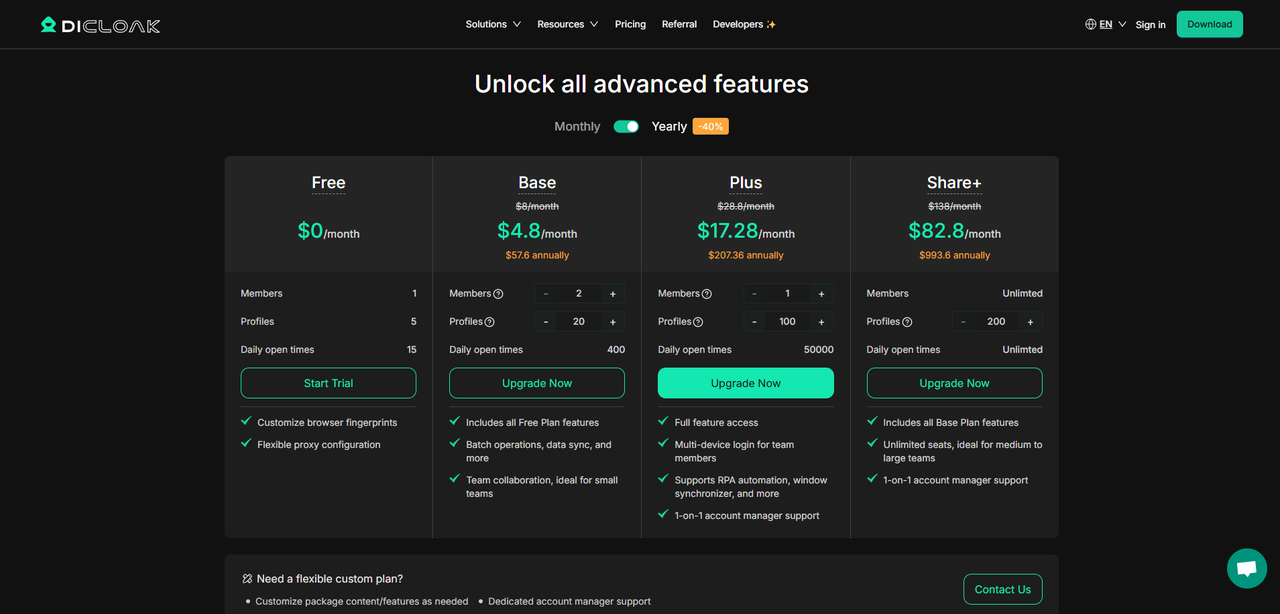
Step 2: Set Up an Isolated Profile for Facebook
Once installed, open DICloak and navigate to the "Profiles" section. Create a unique profile specifically for each Facebook account. Each profile will act as a secure container, keeping its own cookies, fingerprints, and browsing history separate. This ensures that your Facebook login and personal data remain protected from any unwanted exposure or conflicts.
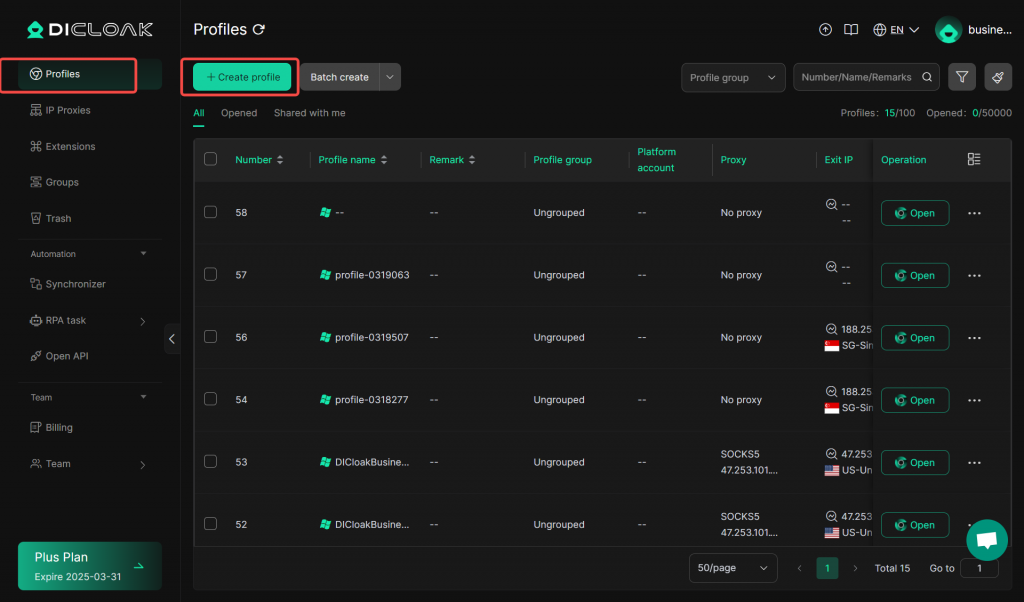
Step 3: Set Proxy for Each Profile
DICloak allows you to enhance your security by configuring proxies. You can set up static residential proxies from trusted providers, ensuring your identity is masked and reducing the chances of detection. This step helps keep your Facebook account safe from potential risks.
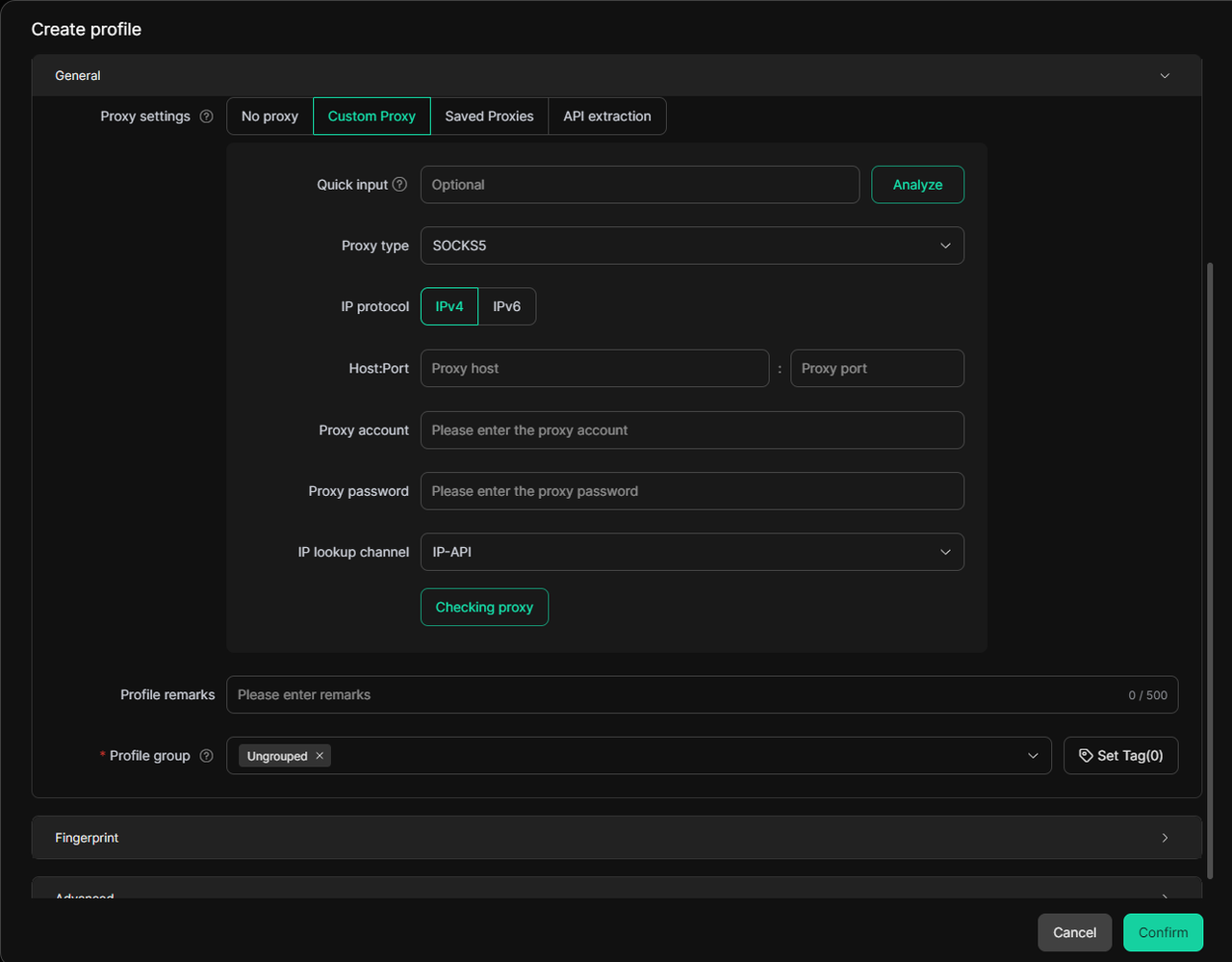
Step 4: Boost Team Efficiency and Automate Facebook Management
If you manage ads or social media, DICloak provides a perfect platform for team collaboration. You can invite team members, assign roles, and manage access securely without ever needing to share passwords. This not only increases security but also makes teamwork more efficient.
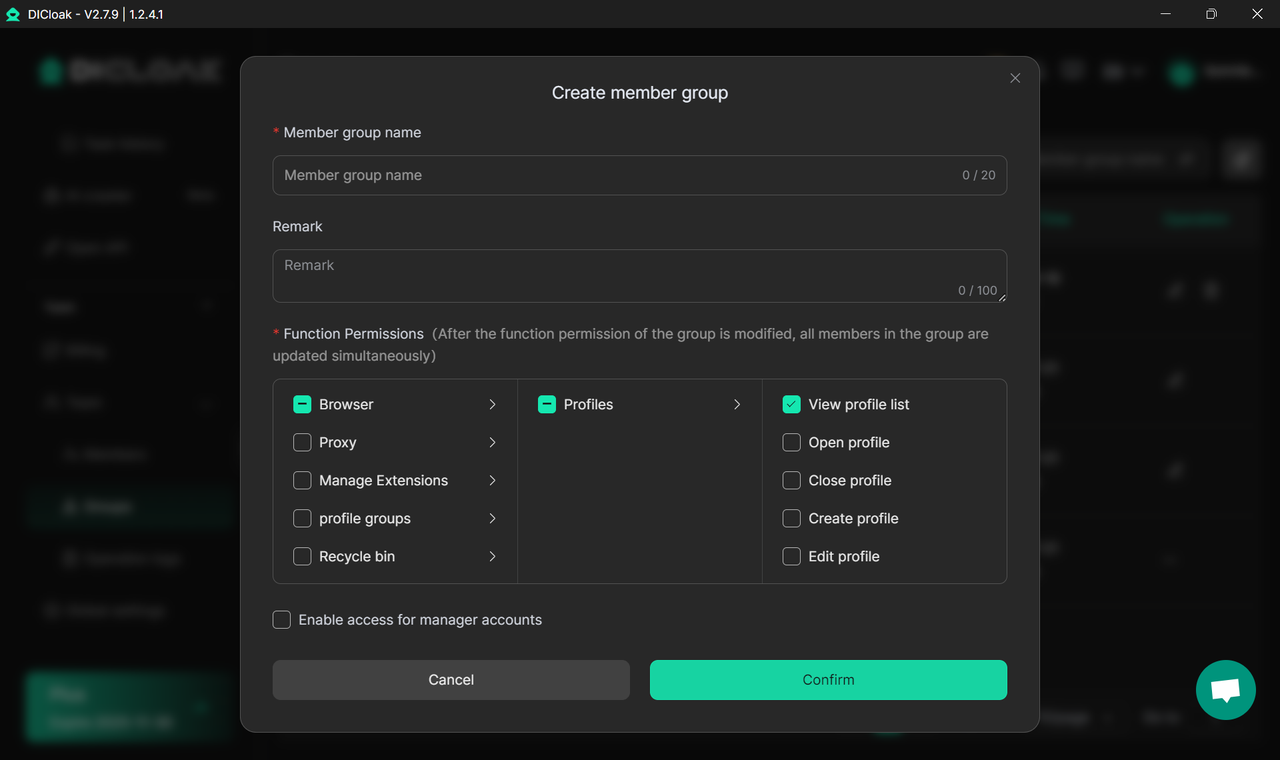
- Automate Routine Tasks and Save Time
Repetitive tasks can drain your time, but DICloak’s browser automation feature makes it easy. It can automatically handle tasks like logging in, posting updates, and managing ads. By mimicking real user behavior, the automation system keeps your accounts secure while saving you valuable time, allowing you to focus on what matters most.
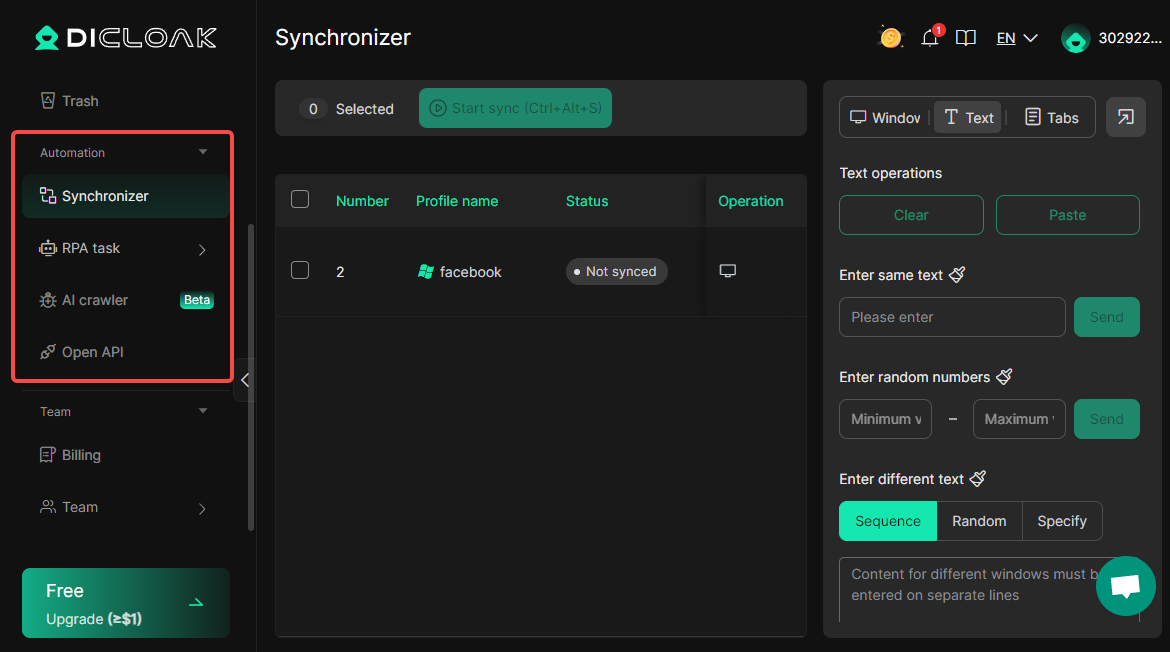
In addition, DICloak offers ready-to-use RPA templates designed for Facebook operations, such as bulk posting, message replies, and ad management. With its window synchronization feature, you can manage multiple browser windows at once, allowing you to scale your workflow flexibly and efficiently while ensuring security.
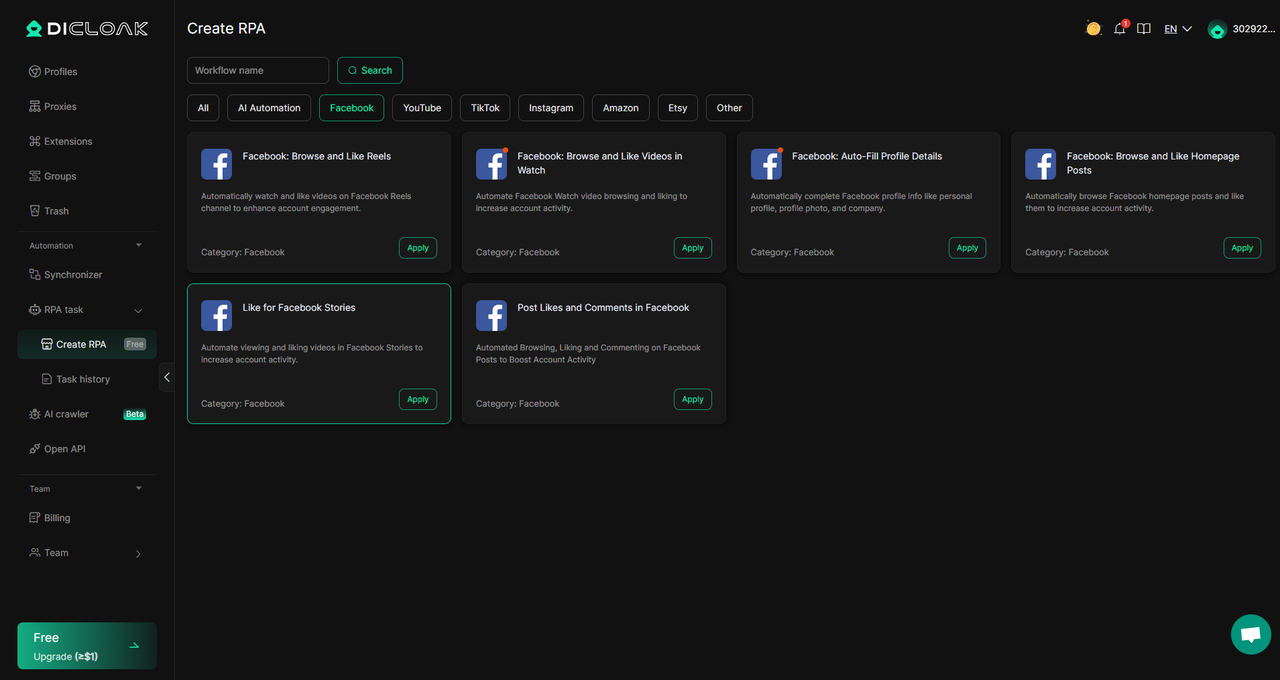
Conclusion
Recovering your Facebook account is crucial for protecting your personal data and maintaining your social connections. By following the step-by-step recovery process, addressing common block issues, and using expert security recommendations, you can restore and secure your account. Additionally, tools like DICloak help manage multiple profiles securely, preventing future blocks. Taking proactive measures ensures that your Facebook account remains safe, and you can avoid complications down the road.
FAQs About Recover Facebook Account
FAQ 1: How do I recover my Facebook account if I forgot my password?
If you've forgotten your password, visit the Facebook login page and click "Forgotten password?". Facebook will guide you through the recovery process by sending a password reset link to your email or phone number, helping you recover your Facebook account quickly.
FAQ 2: What should I do if my Facebook account is blocked or restricted?
If your Facebook account is blocked or restricted, you need to follow the steps in the "Recover Facebook account" process. This may involve verifying your identity, submitting the necessary documents, or following the appeal procedure provided by Facebook to lift the restrictions.
FAQ 3: How long does it take to recover Facebook account access?
The time it takes to recover your Facebook account varies depending on the issue. If you follow the steps carefully and provide the required information, recovery can take anywhere from a few hours to several days. If your account is blocked, the process might take longer due to manual review.
FAQ 4: Can I recover my Facebook account if it’s been disabled for over 180 days?
Recovering a Facebook account that has been disabled for over 180 days can be challenging. However, you can still try to recover your Facebook account by contacting Facebook support, providing identity verification, and following their recovery instructions.
FAQ 5: How can I prevent future issues with my Facebook account after recovery?
To avoid future problems and ensure your Facebook account remains secure, it's crucial to enable two-factor authentication (2FA), use strong passwords, and review your account’s security settings regularly. These actions help protect your account from unauthorized access and minimize the risk of needing to recover Facebook account again.